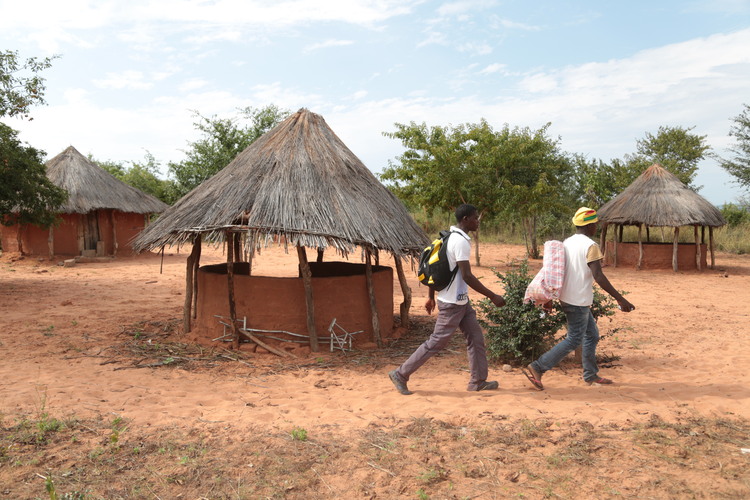
The Sunday Mail

Harmony Agere – Extra Reporter
The United States Fish and Wildlife Services imposed the ban on Zimbabwe and Tanzania after citing “questionable management practices and lack of effective law enforcement”.



Wildlife districts benefiting from Community Areas Management Programme for Indigenous Resources (Campfire) are bound to be affected by revenue loss following the trophy hunting ban imposed on the country by United States of America, officials say.
Since the late 1980s, Campfire has been the pioneer of community-based natural resource management and has been funding various community development projects with revenue generated from wildlife utilisation.
However, the institution is reportedly finding it increasingly difficult to uphold this mandate after income from safari hunting declined from $2,2 million in 2013 to $1,5 million primarily due to the ban.
The United States Fish and Wildlife Services imposed the ban on Zimbabwe and Tanzania after citing “questionable management practices and lack of effective law enforcement”.
A tour of Campfire communities in Matebeleland North last week revealed that the ban may have already started affecting these communities as infrastructural development and employment creation projects are now stalling.
Reports say the situation is even worse in Tsholotsho where illegal settlements are more rampant in wildlife reserves.
Figures from Campfire show that about 777 000 households in 58 wildlife districts may be affected with the ban.
“The (Campfire) funds have been going down over the years due to a variety of factors which include the hunting ban as well as the sprouting of human settlements in wildlife reserves,” said the chief executive officer for Hwange Rural District Council, Mr Phindile Ncube.
“A lot of clients for hunting safaris were coming from America so the ban virtually killed the business and that affects our community development projects because the funds come from hunting concessions,” he added.
Nonetheless, Mr Ncube said despite the meagre funds, Campfire still managed to build a couple of schools and clinics in Hwange, albeit at a slow pace.
In Binga, the same situation is prevailing. Campfire is struggling to complete the construction of some schools.
“The desire to develop the communities is there but it is the issue of funding which is always a problem,” said Binga District Administrator Mrs Lydia Banda-Ndethi.
“The situation is made worse because we now have people settling in our game parks thereby making them less marketable, yet the funds to develop the community are supposed to come from the same conservancies.”
Chief Sikalenge of Sialichaba Village in Binga, however, said there is not much change in the way Campfire has been contributing to community development.
“There has not been much change so far. From time to time council sends money for community development, the only problem is that it is too little,” Chief Sikalenge said.
Some villagers concurred with the Chief’s sentiments, they argued that Campfire was giving very little to the community given the vast revenue it generates.
They say the association is not disclosing the amount it is generating in the communities, a development which they believe is a result of abuse of funds
Mr Jonga, however, said about half of Campfire revenue goes to community development while adding that a lot of projects have been completed despite the challenges.
“From safari hunting in general, 45 percent of gross revenue goes to the Campfire programme, while 55 percent is retained by safari operators,” he said.
“Income paid to the programme is distributed according to Campfire Revenue Sharing Guidelines, which prescribe that at least 55 percent of revenues should be devolved to producer communities.
“No more than 26 percent, and 15 percent (goes) to management and overheads respectively at the Rural District Council level, and 4 percent as a levy to the Campfire Association.
Mr Jonga said on average, at least US$1 million per year in net income directly benefits local communities, and most of this is derived from the lease of sport hunting rights to commercial safari operators in 49 Campfire hunting concessions.
However, villagers in the affected areas remain adamant that both Campfire and the Zimbabwe Parks and Wildlife Management Authority are not giving enough to the community.
The Zimbabwe Parks and Wildlife Management Authority had not replied to questions sent to their Public Relations department by the time of going to print. Headmen in Sialichaba, Siyabhuwa and Lukhosi among other villages in Hwange and Binga also said that the development in these areas was not reflective of their local natural resources. Campfire Association of Zimbabwe director, Mr Charles Jonga, acknowledged that there was a drop in revenue but added that it is not yet clear if the decline was a result of the hunting ban. “At this stage, it is not clear if this (revenue decline) is a result of the US ban on ivory imports from Zimbabwe or other factors,” said Mr Jonga.
“What we know is that US citizens who had booked 108 out of the 189 trophy elephant hunts under Campfire in 2014 failed to conduct their hunts due to the ban,” he said.



